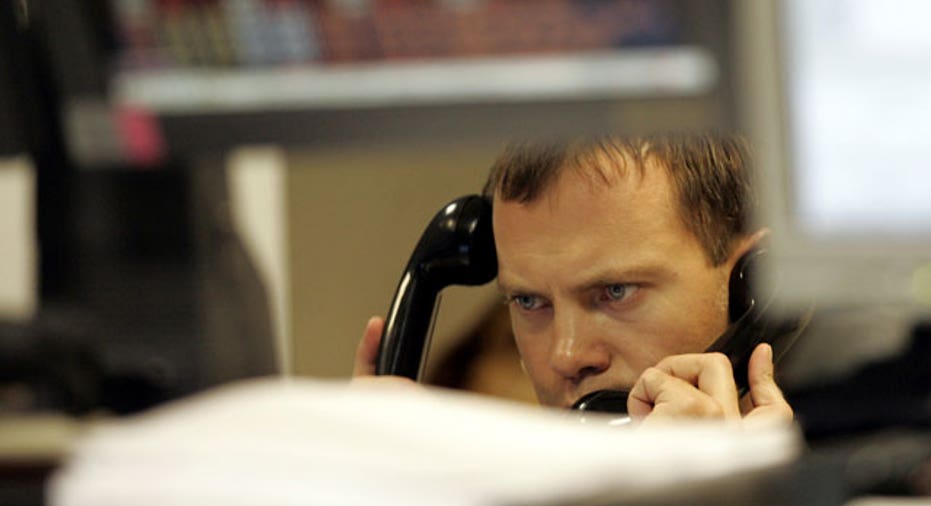Global Markets Climb to 1-Week High

World shares rose over half a percent to one-week highs on Friday on hopes that European policymakers might at last come up with measures to combat a deepening debt crisis but the euro gave up some of the gains seen in the previous session.
U.S. stock futures pointed to a weak open on Wall Street.
Risk appetite received a boost on Thursday following coordinated action by five major central banks to add liquidity to a European banking system struggling with its dollar funding needs.
By 0945 GMT, MSCI's benchmark global equities index was up 0.65 percent adding to gains of 1.2 percent on Thursday while Europe's FTSE Eurofirst index of top shares rose for the fourth straight session, up 1 percent .
Gains were led by banks as Credit Suisse , ING and Societe Generale jumped more than 4.2 percent, though some financial sector stocks such as Deutsche Bank and Unicredit pared early strong gains.
"There is a no doubt that the developments reached overnight are positive for markets as it addresses a liquidity issue that had begun to creep into European banks," said Ben Potter, strategist at IG Markets in London.
"There was a lack of confidence beginning to build in the European interbank lending markets and these U.S. dollar funding lines will help ease these confidence issues."
The central bank action does nothing however towards resolving the euro zone debt issue and the fear of a global recession, issues that are weighing heavily on risk appetite.
Despite four days of gains, world stocks are down 3.4 percent this month and have lost 10 percent so far in 2011.
Focus now is on a meeting later on Friday between U.S. Treasury Secretary Timothy Geithner and European finance ministers, on the possibility of leveraging the euro zone's bailout fund to resolve the debt crisis.
The hope is the meeting will yield a more decisive result that will stave off a Greek default but many were pessimistic.
"The market is not ready to make any big bets on this meeting. Investors will be very focused on anything that indicates disagreement between European politicians and finance ministers on what to do on this serious issue of euro zone debt," said Niels Christensen, FX strategist at Nordea.
U.S. stock futures pointed to a weaker open for equities after strong gains in the previous session, with futures for the S&P 500 , for the Dow Jones and for the Nasdaq 100 down 0.1-0.4 percent.
EURO HANDS BACK SOME GAINS
Analysts said there was plenty of scope for disappointment from the finance ministers' meeting, prompting some players to book profits off the euro's recent gains.
The euro slipped 0.5 percent at $1.3800 , off a one-week peak of $1.3937 hit on Thursday but well above a seven-month trough below $1.35 plumbed on Monday. The common currency has bounced some 2 percent so far this week.
"People are taking profit from the short move higher on the back of the dollar liquidity measure but ahead of the weekend the market is not ready to take euro/dollar very far," Nordea's Christensen said.
However, the funding strains which had hit European banks, with a knock-on effect on the euro, appeared to be easing.
The three-month euro/dollar cross currency basis swap , or relative premium for swapping euro LIBOR for dollar LIBOR, narrowed to around 89 basis points after the announcement, from as wide as 115 basis points on Monday.
Wider spreads reflect elevated demand to borrow U.S. dollars in the currency forward market and often support the greenback's spot value against the euro.
But investors remain reluctant to take big bets on the dollar ahead of a U.S. Federal Reserve meeting which could flag more measures to boost the economy. That's especially the case after Thursday's weak factory and job data releases.
Such a move, dubbed QE3, would weigh on the greenback.
"Any inkling that is on the cards will be the signal for equity markets to rise and dollar selling across the board," said Steven Saywell, head of FX strategy at BNP Paribas.
The dollar index rose 0.5 percent at 76.674
U.S. Treasuries steadied after 10-year yields hit two-week highs of 2.12 percent on Thursday. By 0710 GMT the yield stood at 2.08 percent . But German Bund futures slipped after hitting session highs, standing 22 ticks lower at 135.80 in nervous trade ahead of the meeting in Poland.
The central banks' coordinated action boosted commodity markets as well, with oil futures rising 50 cents a barrel to around $112.8. But stock gains and the improved risk appetite hit gold, with prices for the metal down 1 percent and heading for the biggest weekly drop since March 2009.



















